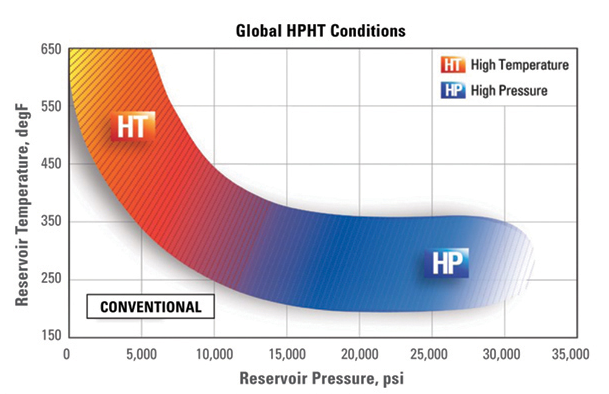Project Description
This course introduces students to the HPHT well complexities and will teach them how to identify the specific areas where detailed design work is required to properly plan and drill an HPHT well.
The course will step through the stages of well planning but focuses on the specific issues that are unique to HPHT drilling. All the subjects are supported and reinforced by numerical examples. The course contains a mixture of formal teaching, individual and group exercises, and case histories Informal discussions of local issues will be covered.
Why attend
Testing a specific HPHT drilling program in a safe environment will increase operational performance and safety. This course is designed to give professional drilling teams the necessary understanding of the concerns and risks of drilling a specific HPHT well prior to spud-in. Team-based training will present and create an understanding of the agreed and improved procedures before drilling the well as laid out by the drilling contractor and the oil company.
The course is a combination of practical, real life scenario based training and classroom training. The drilling team will learn how to identify and eliminate activities with the potential to increase drilling risks. Because of the simulator-based training they will get practical experience with the consequences of their decisions; errors, mistakes and successes becomes very clear. This will help build their experience-base and increase their situational awareness allowing them to more quickly respond to planned and unplanned situations when drilling the actual HPHT well.
Course Objectives
By the end of the course, participants will be able to:
- Enhance operational performance and safety when drilling the actual HPHT well.
- Create an environment where all team members can challenge existing HPHT practices and procedures, and suggest or develop new ones that will enhance operational performance and safety.
- Identify and eliminate activities that have the potential to increase drilling risks.
- Recognize the purpose of work execution and job completion and characterize its advantages and disadvantages, implement the methods of maintenance quality assurance and continuous improvement and employ the method of Root Cause Failure Analysis (RCFA).
Who should attend
This course covers systematic techniques in maintenance and reliability management to assist maintenance management team in delivering maximum reliability and availability of equipment at the lowest possible cost. The course will present techniques designed to improve the effectiveness of maintenance management activities, to ensure that physical assets perform their required functions, operate reliably, and support corporate goals. It is essential for all maintenance and reliability management.
Course Outline
- Why HPHT needs special preparation
- Why better management and response time is needed.
- Quick review of disasters at high pressure and temperature wells.
- Muds for high temperature drilling and workover. Hydraulic calculations. Failure of mud parameters to be stable.
- Cements for high temperature and pressures.
- Equipment needed: Drill bits, Drill motors, hi-temperature greases and chemicals, effect on drill collars and steel, special rubber and seal material and techniques.
- Well control: Special case. Simultaneous kick and underground blowout from one formation to another.
- Design of drilling, casing, and workover assemblies. Stresses and temperatures
- Gas Behaviours, Kicks and Control
- Surface Gas Handling Capacities and Procedures for HPHT Well Programs
- Shut In Procedures and Decision Trees
- Bull heading Overview
- Volumetric Method of Well Control
- Stripping
- The effects of Temperature and Pressure on Muds
- The effects of Borehole Ballooning on Drilling Responses
- Management of Operations
The workshop
This interactive training course includes the following training methodologies as presented on the next column based on percentage of the total tuition hours:
Lectures
Workshops & Work presentation
Case Studies & Practical Exercises
Videos, Sofware & General Discussion
The course instructor may modify the above training methodology before or during the course for technical reasons with no prior notice to participants.
Falcon Consulting Professionals is established in Greece for the last 15 years in the areas of technical consulting and professional training for the local industries. Falcon is expanding in GCC, aiming to provide the best consulting and training solutions to the industries of the region. Falcon’s instructors are accredited trainers and highly experienced in their fields, as well as adult training. We aspire to build our business relationships on mutual trust. The achievement of results with an emphasis on innovation and sustainability, quality, cost analysis and time scheduling are non-negotiable from the conceptual phase of the training.

